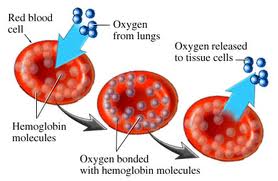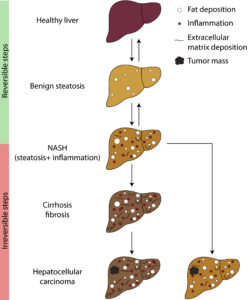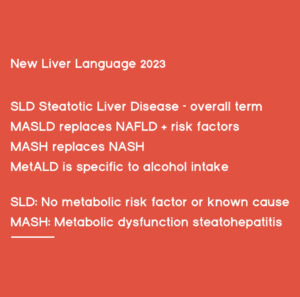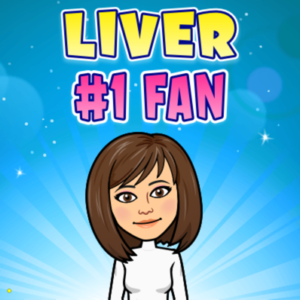What to do with Anemia and Hepatitis C Treatment

Let’s talk about what to do with anemia and Hepatitis C Treatment. If you like the Gothic look, you’re going to love this. I’m glad the Twilight movies were out when I treated. I told friends that I was sporting the “Bella” look! Seriously though, a low Red Blood Count (RBC) is common during treatment. It is especially hard for those of us with cirrhosis. For more about how anemia acts and lab values, click here. Your spleen sequesters, or hoards, your platelets if you have advanced liver disease. Suffice it to that this is one of those things you should ask your doctor about before treatment. Anemia is common during hepatitis c treatment. If you’ve read my Telaprevir page, you know that keeping those appointments for labs are vital. Stay in constant contact with your doctors. You do NOT have to be an expert in understanding what all the numbers mean. Your doctor will. Ask a lot of questions.
For starters, each doctor has their own plan for what I call “rescue drugs” that would help you remain stable during treatment. In other words, your hemoglobin or platelets may need rescuing in order for you to survive, thrive, and stay on treatment. You may want to ask how low they will let your hemoglobin go before they begin prescribing a prescription to rescue your count. You may even inquire of your insurance company to see how they will pay for it. Most hemoglobin (HGB) medications have not been approved for those who are on Ribavirin. It took my doctor and myself both advocating to get it approved. At one point, the doctor gave me a shot of Procrit at the transplant hospital for free to keep me from having to go off of hep c treatment.
Approximately 1/3 of patients on treatment have a hemoglobin count of 10 or less. It does appear a little sooner for those on triple therapy. Many do not have them drop below 10, and while it is not an indicator of how well the medication is working, some studies have shown that anemia may point to SVR!
The first thing your doctor may do is reduce your Ribavirin dose. That was the recommendation from the trials and is still the general rule for those whose hgb count begins a rapid drop. I had a dose reduction within a few weeks of starting treatment. At first it was frightening to me because reduction, or any temporary disruption of treatment can cause a resistance to the treatment medication.
You will be getting regular lab work done, maybe monthly or every two weeks. If there is a significant drop in your hgb levels, the doctor may reduce your Ribavirin dosage and prescribe a medication to raise your red blood cell numbers. Erythropoietin is a drug with brand names Epogen or Procrit. It promotes rbc production in your bone marrow. I eventually got Procrit, which is an injectable that is usually given at home, like your Interferon shots. You will probably have to have weekly labs drawn until your hgb levels are elevated. The doctor will adjust the Procrit and Ribavirin based on your weekly labs. Again, you want to keep your Ribavirin at full dose to prevent discontinuation of treatment.
It’s alarming to be working so hard on managing your life around treatment, only to have a dose reduction. This is where you find a balance between the trust you placed in your doctor, and your own gut instinct. Fear creeps in and you begin wondering if you are getting enough of the medication to get that undetectable reading. I had labs drawn every Friday in my city and they were sent to the doctor at the transplant hospital where I treated. The nurse called me every Monday and let me know if a reduction was needed. Two times I had to go in and get a Procrit shot. One time they arranged for it in my city. I ran over at lunch and got labs drawn STAT and was back in a few hours for a Procrit shot. I think my numbers were about 7 that day.
 Potential symptoms of low blood counts. They can vary from person to person depending on your dosage, length of treatment, and liver health. Fatigue is the first thing I noticed. Your entire body feels like it is encased in a lead suit. Just reaching your hand out can feel like you’re lifting a 20 pound weight. Walking is difficult also because dizziness can cause your surroundings to be distorted. You know that house of mirrors at the fair where you walk on an uneven floor and all the reflections are wavy? Yep. That’s what it’s like some days. So you get this stare in your eyes trying to focus. I used this as one of my comic relief moments. I would begin to sway or lean while talking to someone or when using stairs. Stopping in my tracks and casually leaning against a wall while positioning my legs to hold me up, I would act as if that were the most natural thing in the world to be doing. Oh I’m laughing now at my wigged topped, gothic skinned self all propped up. But I did learn how to deal during anemia and hepatitis c treatment. I finished!
Potential symptoms of low blood counts. They can vary from person to person depending on your dosage, length of treatment, and liver health. Fatigue is the first thing I noticed. Your entire body feels like it is encased in a lead suit. Just reaching your hand out can feel like you’re lifting a 20 pound weight. Walking is difficult also because dizziness can cause your surroundings to be distorted. You know that house of mirrors at the fair where you walk on an uneven floor and all the reflections are wavy? Yep. That’s what it’s like some days. So you get this stare in your eyes trying to focus. I used this as one of my comic relief moments. I would begin to sway or lean while talking to someone or when using stairs. Stopping in my tracks and casually leaning against a wall while positioning my legs to hold me up, I would act as if that were the most natural thing in the world to be doing. Oh I’m laughing now at my wigged topped, gothic skinned self all propped up. But I did learn how to deal during anemia and hepatitis c treatment. I finished!
 Where was I? Fatigue, dizziness… and shortness of breath. Your RBC carry oxygen throughout your body. It makes sense that if you do not have enough of those red blood cells, your body will automatically increase your heart rate and blood pressure in an attempt to get more blood moving. Except the blood is diluted in a sense, so you breath harder and faster and nothing works. Sitting is a good thing. Rest. Just love the couch, computer chair, or bed. Lay aside your pride and ask your allied health team (family and friends) to please bring you what you need. I had a little plastic bucket that had my meds, creams, lotions, snacks, back scratcher, ear plugs, bottle of water, and a book in it. It was a messy thing with wadded up tissue and pecan roll wrappers, and only my daughter knows what else. She tidied it up for me from time to time. I would plant on the couch for hours some days. This continued throughout the 43 weeks to a greater or lesser degree.
Where was I? Fatigue, dizziness… and shortness of breath. Your RBC carry oxygen throughout your body. It makes sense that if you do not have enough of those red blood cells, your body will automatically increase your heart rate and blood pressure in an attempt to get more blood moving. Except the blood is diluted in a sense, so you breath harder and faster and nothing works. Sitting is a good thing. Rest. Just love the couch, computer chair, or bed. Lay aside your pride and ask your allied health team (family and friends) to please bring you what you need. I had a little plastic bucket that had my meds, creams, lotions, snacks, back scratcher, ear plugs, bottle of water, and a book in it. It was a messy thing with wadded up tissue and pecan roll wrappers, and only my daughter knows what else. She tidied it up for me from time to time. I would plant on the couch for hours some days. This continued throughout the 43 weeks to a greater or lesser degree.
Once your HGB gets above 10, your doctor may take you back to a full dose of Ribavirin. You can move around better, but the side effects are still there. They are just not as intense. If you develop anemia, you will be able to tell when your hgb is dropping. Call your doctor and let them know. My insurance discontinued mine when my hgb hit 12 for 2 weeks. I knew it was dropping and was unable to get more in time. I ended up needing a transfusion. I’ll have a whole page devoted to that.
I wrote another blog relating to anemia and hepatitis c treatment. What we talked about today was what to ask your doctor before treatment, your insurance company limits on rescue drugs like Epogen and Procrit, and how to rest until your numbers increase again. There is not a lot you can do nutritionally to raise the levels. Your multi-vitamin and Vit D should help though. It gets a whole lot better fast after treatment is over. My hgb has been normal since 1 month after treatment ended. Isn’t our body amazing? It really is. You may be going through hell right now physically. But your body is strong and has an amazing capacity to heal itself.
It’s fairly common to have some degree of anemia with Hep C treatment. I’m your best friend in this battle. I would not lie to you. I feel better today than I have in years. Yes, I still have cirrhosis and have to eat healthy and pace myself for the rest of my life. It’s a good life. I’m enjoying every minute of it. Karen 🙂
Blog posts by Karen Hoyt are written from a Best Friend’s view point. I always advise you to talk with your doctor about any changes you make regarding your health care.
What to do with Anemia and Hepatitis C Treatment








4 thoughts on “What to do with Anemia and Hepatitis C Treatment”
I enjoyed reading your article, I was actually looking for liver disease and anemia, because I found out my levels are at 10 and taking all those iron pills is bad news for me. I have hep c and have had it for 20 yrs. My husband died six months ago from cirrhosis and liver cancer, I am lost without him. What I was wondering if my low iron levels because of my hep c and does it mean I might be having liver failure? You seem to be very informed about this kind of thing, I seen a doctor recently and she seemed very concerned about my liver disease and maybe I can get some help now. Most doctors don’t want to get involved, so it seems.
Thanks,
Kellie
Hi Kellie!
I’m glad you found the Best Friends Guide. I am so sorry to hear about your husband. You are really going through a lot. I know that caring for him must have been hard. Plus you miss him and are grieving now. Do not let that put too much fear in your mind about your own liver. Fear is our enemy. It is probably hard for you to separate it in your mind. But YOU have a chance to treat and get rid of the virus.
About your doctor – maybe you need a new one. You can take control of your health. Don’t let your doctor ignore the fact that you are battling liver disease and Hepatitis C and cirrhosis. Find someone who will help you! You have a right to treat and be free of the virus so you can heal. Your liver will take you a long way!!!! They may be concerned about treatment and anemia. There are drugs you can take for that. I had anemia and it got worse during treatment. I had to fight to stay on it. The undetected lab work made it worth the battle.
You’re right, iron supplements are not that good for us. I have found some safe vitamins that do not contain iron. We usually get enough in our diet anyway.
Keep in touch as you continue your journey. You can have a future dear friend. Be blessed today. Thanks for your comment.
xoxo Karen:)
I was weeks into hep C treatment with interferon and ribovirin and I had severe anemia and the physician assistant treating me @ VA hospital gave me iron supplements. Did not back off the doses and upon her absence another doctor immediately pulled me off the iron! Also, was never told of the complete after effects of these drugs which has torn up my body! I was told I could inject the interferon in my arm which caused horrible effects. I had injection site scars, and this treatment has left me fairly disabled. I would never recommend this treatment to anybody… And a physician assistant overseeing this? Not qualified !!
I am so very sorry to hear of your experience. I do know that when I had HCV I was told that I should not take any iron as it could damage the liver. I was also told to inject just under the skin either in the stomach or the thigh. I am sorry that you received such sub standard treatment. How long has it been since you treated? To my knowledge interferon is now rarely used. There are so many new drugs out there that are taken for a much shorter time period and involves one or two pills. One is called Harvoni and treatment is 8, 12 or 24 weeks now. The side effects are much less. I also did interferon and ribavirin, it has taken me a long time to recover. I am getting better. I know that my liver is getting better based on tests. I have also tried to eat well drink a lot of water take vitamins. I am convinced that the treatment depleted me of important nutrients. One thing I have read in scientific studies is that it depletes our dopamine level which is a feel good chemical. It sound about right to me, after treatment I never felt good. I am feeling better now
Take Care, Dee
Comments are closed.